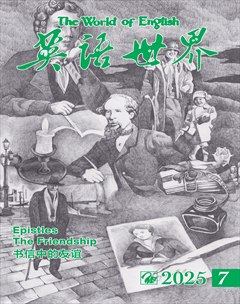Your digestive system is responsible for turning what you eat into energy and nutrients1 for your body. It’s important to maintain good digestive health to keep that process running smoothly. These Traditional Chinese Medicine (TCM) tips will help you take care of your gut and treat a variety of digestive issues.
人的消化系统负责将摄入的食物转化为能量和营养,以供身体所需。维持良好的消化系统健康以确保消化过程顺畅十分重要。以下这些中医妙方将助您呵护肠胃并化解多种消化问题。
How digestion works according to TCM
中医消化原理
When TCM doctors talk about disease, they speak of internal imbalances that cause one’s qi (vital energy) or blood to stagnate2. When it comes to digestion, the major areas to look for imbalances are the stomach, liver and spleen.
中医在谈论疾病时,会提到体内失衡导致气(生命能量)滞或血瘀。在涉及消化问题时,可能出现失衡的主要脏腑是胃、肝和脾。
The word “spleen” here doesn’t correspond3 to the anatomical4 part called the spleen. Instead, it refers to a functional (rather than physical) entity associated with the stomach. Together with the stomach, it governs the absorption of food and the dispersal of food’s nutritive essence throughout the body, sending leftover fluids to the kidneys and bladder. If you’re experiencing diarrhea, bloating5 and headaches, you may have a malfunctioning6 spleen. Symptoms like vomiting and frequent belching are a sign of an imbalanced stomach.
这里所说的“脾”并不对应解剖学中的器官“脾脏”,而是指与胃相关的一个功能性(而非生理性)的实体。它和胃共同负责吸收食物,并将食物营养之精华输送至全身各处,同时将多余水液输至肾脏和膀胱。如果出现了腹泻、腹胀和头痛等症,可能是脾功能失调。有呕吐、频繁呃逆等症状,则可能是胃功能失调的信号。
The liver also plays an important role in digestion, as it controls the flow of qi and blood in the body, aiding the spleen and stomach.
肝脏在消化过程中也起着重要作用,因为它调节体内气血的运行,辅助脾胃消化。
Dietary suggestions
饮食建议
Figure out if you need more yin or more yang.
应先判断您是需要补阴还是补阳。
Balance is a key principle of Taoist philosophy, which is the bedrock7 of TCM. Eating a balance of yin (cooling) and yang (heating) foods is essential maintaining the flow of qi in your body, which leads to good health.
平衡是道家哲学的核心原则,道家哲学则是中医学的基石。





